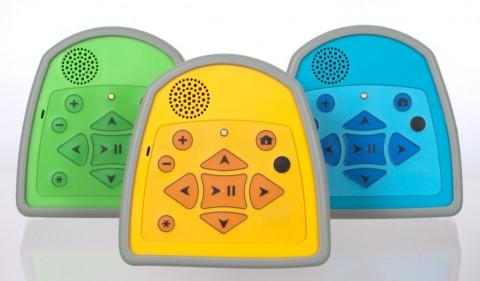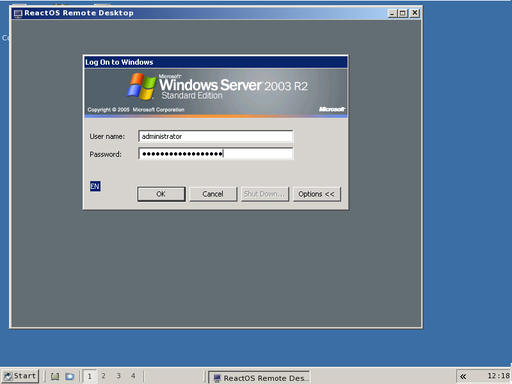

Adam Osuchowski was poking around in the deep dark places of the kernel and came upon some hard-coded assembly that used the xadd instruction. Because the 386 CPU didn't implement an xadd instruction, Adam asked whether Linux still supported the 386. The xadd instruction turned out to be just a bug, but the incident sparked a discussion about which older systems were and were not supported under Linux.
In terms of systems supporting Symmetric Multi-Processing (SMP), Alan Cox remarked that the first system to support Intel's MP standard was the 486 with external APIC. He reckoned those would be the oldest systems capable of running SMP Linux, although he felt the earth may have been denuded of such systems long since. Maciej W. Rozycki commented:
I failed to track down a single 486 SMP system that would adhere to the MP spec. There were, and possibly still are, APIC-based 486 SMP systems out there, but most likely they are not Intel MPS-compliant, by not providing the MP header at the very least. Thus, Linux would have to be ported, and I gather the interest in doing so is epsilon. Myself, I could not resist trying an APIC-based 486 SMP box and possibly fixing issues if I found one and it was MPS-compliant, but nothing beyond that I would say. Life's too short.
In terms of the 386, there was some speculation by various people, but no one could say for sure whether Linux would run on them. Jan-Benedict Glaw said he had an old, still functioning 386 that he'd dug out of storage, and that “it still powers on and boots up that ancient Debian version, using a 20GB (right, gigabytes) HDD.” He said he might try experimenting with more current kernels and see whether they worked. Various other folks pointed out that 386 CPUs were still used in various embedded systems, and Ingo Molnar remarked that he knew of someone who occasionally booted up a 386 with current kernels.
So apparently the 386 is still kicking. My guess is the 286 is out of luck though—at least until someone decides to brave those strange waters.
Last year at LinuxWorld, I had the opportunity to speak with Cliff Schmidt, the Executive Director at Literacy Bridge (www.literacybridge.org). At that point, Cliff was showing off an audio recording device with the eventual plan of being able to distribute sub-$10 gadgets that would allow for education and collaboration in struggling third-world countries. The little device that was literally in pieces back at LinuxWorld now is being used in Ghana as part of a pilot program.
Although in many ways the less than $10 “Talking Books” lack features of the OLPC laptops, they also offer some advantages over their big brothers. The first is obviously in cost. Second, the audio-only interaction enables education where illiteracy often is a stumbling block. Paired with freely available audio recordings and the ability to record and share additional content, the Talking Books will be able to reach people that even the OLPC Project left behind.

Cliff Schmidt is the Executive Director of Literacy Bridge.

The Talking Books currently are being tested in Ghana.
If you're a Linux fan, there's a bit of a tendency to think that Linux and open source are two ways of saying the same thing. However, plenty of FOSS projects exist that don't have anything to do with Linux, and plenty of projects originated on Linux that now are available on other systems.
Because a fair share of our readers also use one of those other operating systems, willingly or unwillingly, we thought we'd highlight here in the coming months some of the FOSS projects that fall into the above categories.
We probably all know about our BSD brethren: FreeBSD, OpenBSD, NetBSD and so on, but how many of us know about ReactOS? ReactOS is an open-source replacement for Windows XP/2003. Don't confuse this with something like Wine, which allows you to run Windows programs on Linux. ReactOS is a full-up replacement for Windows XP/2003.
Assuming you consider that good news (a FOSS replacement for Windows), the bad news is that it's still only alpha software. However, the further good news is that it still is under active development; the most recent release at the time of this writing is 0.3.8, dated February 4, 2009. For more information, visit www.reactos.org.

ReactOS Remote Desktop (from www.reactos.org)
1. First issue to contain an LJ Index: 64
2. Number of LJ Indexes in previous issues of LJ: 102
3. Number of articles in previous issues of LJ: 4,338
4. Google hits for “I Love Windows”: 49,500
5. Google hits for “I Hate Windows”: 76,000
6. Google hits for “I Love Linux”: 75,300
7. Google hits for “I Hate Linux”: 5,660
8. Google hits for “I Love Mac”: 202,000
9. Google hits for “I Hate Mac”: 11,400
10. Utility patent applications to the US Patent Office between 1790 and 2007: 13,154,369
11. Utility patents issued (1790–2007): 7,301,128
12. Utility patent approval rate (1790–2007): 55.5%
13. Utility patent applications in 2007: 456,154
14. Utility patents issued in 2007: 157,283
15. Utility patent approval rate: 34.5%
16. Best utility patent approval rate (1933): 86.2%
17. Worst utility patent approval rate (1947): 26.7%
18. Patent search results for the term “Linux”: 7,810
19. Patent search results for the term “Windows”: 146,977
20. Number of characters in Lincoln's Gettysburg Address: 1,476
21. US National Debt as of 02/17/09, 1:30:44pm CST: $10,776,246,598,791.76
I was pricing a low-end desktop computer the other day. When configuring it, I noticed that if I added a four-year warranty, it would cost more than the entire system! We've really come to the point where computer hardware is like a plastic fork. If a tine breaks off, it gets thrown away. Sadly, although throwing away plastic forks is rough on the environment, used computers are so much more so.
Thankfully, green is the new pink, and everyone seems to be interested in conservation and recycling. The problem is it's easier to talk about recycling computer hardware than to do it. I work at a school district, and we have a closet full of old CRT monitors just waiting for an opportunity to be recycled. There aren't any recycling places in our area, and thanks to the lead and glass, CRT monitors are very expensive to ship. So, they sit in a closet collecting dust.
Some amazing organizations out there are working hard to focus on another R, and rather than recycling old equipment, they reuse it. Places like Free Geek in Portland (www.freegeek.org), which I had the pleasure of touring last summer, take donated computer parts to create usable systems that are sold or donated back to the community. Thanks to Linux, those systems aren't encumbered with licensing issues. It's really a great way to get working, viable, stable computer systems in the hands of people who would likely never be able to afford one.
Although I'm not suggesting everyone should start a local Free Geek (although how cool would that be!), it's possible someone in your area already is doing something similar. Before you put that 17" CRT monitor and Pentium II computer on the curb, try giving it away in the local newspaper. If you like the idea of building computers for those in need, consider doing a small-scale version of Free Geek in your garage. Don't worry about running out of hardware, the local school district likely has computer parts piled in closets it would love for you to “recycle”. With the power and flexibility of Linux, and the steady supply of aging computers, perhaps the path to world domination is by repurposing last year's Windows computers!
Many of you probably are familiar with the Roku media streaming device. In a partnership with Netflix, the Roku (www.roku.com) is one of several officially supported devices for streaming the large collection of Netflix's available movies and television shows. What makes the Roku interesting is that although Netflix doesn't support streaming its DRM-protected movies to Linux users, the Roku itself runs Linux.
The technology to stream Netflix titles to Linux is obviously available. Hopefully, as Linux users, we'll soon be able to join the Internet streaming club and watch movies on our desktops. Even more exciting will be media players like Boxee and XBMC (both of which run under Linux) being able to stream Netflix titles.
It is still frustrating that the streaming titles offered by Netflix are DRM-protected. The unmetered, on-demand streaming is a step in the right direction. Hopefully, in time, companies will realize that DRM only annoys those of us willing to spend money. It encourages pirating, rather than discouraging it.
Western society has accepted as unquestionable a technological imperative that is quite as arbitrary as the most primitive taboo: not merely the duty to foster invention and constantly to create technological novelties, but equally the duty to surrender to these novelties unconditionally, just because they are offered, without respect to their human consequences.
—Lewis Mumford
The drive toward complex technical achievement offers a clue to why the US is good at space gadgetry and bad at slum problems.
—John Kenneth Galbraith
The production of too many useful things results in too many useless people.
—Karl Marx
For a list of all the ways technology has failed to improve the quality of life, please press three.
—Alice Kahn
The real danger is not that computers will begin to think like men, but that men will begin to think like computers.
—Sydney J. Harris
There is no subtler, no surer means of overturning the existing basis of society than to debauch the currency. The process engages all the hidden forces of economic law on the side of destruction, and does it in a manner which not one man in a million is able to diagnose.
—Vladimir Ilyich Lenin
Get your daily how-to fix with LinuxJournal.com's weekly collection of Tech Tip videos. Each video is about one-minute long and walks you through cool tips and tricks. Check out the following:
Getting MP3 Support in Fedora Using RPMFusion Repositories: www.linuxjournal.com/video/getting-mp3-support-fedora-using-rpmfusion-repositories
Donating CPU Cycles with Boinc: www.linuxjournal.com/video/donate-cpu-cycles-boinc
Extract the MP3 Audio Portion of a Video: www.linuxjournal.com/video/extract-mp3-audio-portion-video
Creating Bootable USB Install Drives with UNetbootin: www.linuxjournal.com/video/creating-bootable-usb-install-drives-unetbootin
This month's issue is all about cool projects, and we think the best part about making something cool is sharing it with the world.
Have you written some awesome software? Built a cool gadget? Taken something apart and repurposed its guts? We want to hear about it, and so do LinuxJournal.com readers.
The next time you have a cool project on your mind, whether it's complete or just a glimmer in your eye, log in to LinuxJournal.com and share it in our forums. Leave a comment on articles that inspire you, and let everyone know how you built a better mousetrap. Someone out there has topped Shawn Powers' DIY Arcade Game (www.linuxjournal.com/article/9732), right?
If you are short on time, try building yourself a virtual buddy with Chatbot::Eliza (www.linuxjournal.com/content/it-live-or-it-chatboteliza). Have fun, and don't forget to share your results at LinuxJournal.com!